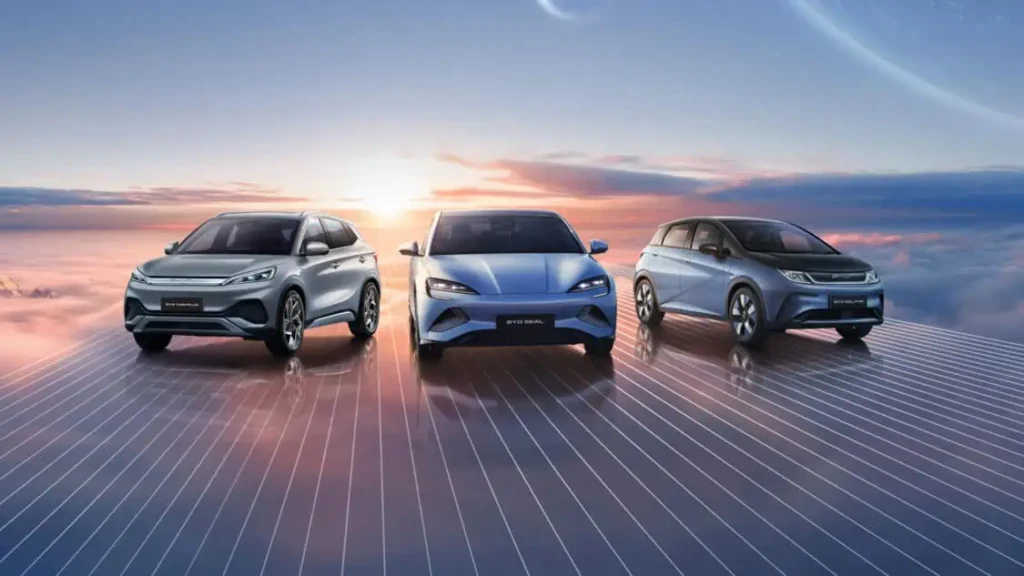BYD on Track to Open Another Massive EV Plant With 150,000 Vehicle Capacity
China’s BYD, the world’s leading electric vehicle manufacturer, is rapidly making its mark on the global automotive scene. The company has confirmed plans to open another expansive EV production facility abroad by the close of 2025. The new plant in Indonesia is set to produce 150,000 vehicles annually, further cementing BYD’s growing international manufacturing presence.
After achieving a record-breaking 4.27 million new energy vehicle (NEV) sales last year, BYD is gearing up for even more aggressive expansion in 2025.
While Tesla still holds the global sales lead by a margin of roughly 25,000 units, BYD has surpassed Tesla in terms of production, edging out its competitor by around 4,500 vehicles to claim the title of “World’s Largest EV Maker” for 2024.
With a surge of domestic EVs hitting the market in China, BYD is now shifting its focus to overseas markets to maintain its growth trajectory. Following the launch of its first EV plant in Thailand last year, the company is on track to open another $1 billion production facility in Indonesia by the end of 2025, according to an interview with Eagles Zhao, BYD’s President Director in Indonesia.
“Every single progression of our local manufacturing is quite smooth and also on the track. We will keep our commitment, which is by end-2025,” Zhao said.

BYD’s expansion strategy is clearly focused on strengthening its global foothold, and the new EV plant in Indonesia is a key piece of that puzzle. Zhao mentioned that the plant will primarily serve as an export hub as BYD ramps up its presence in international markets. This facility will mirror its Thai counterpart in terms of production capacity, reaching 150,000 vehicles annually.
The $1 billion investment in Indonesia has earned BYD a temporary exemption from important taxes, aligning with Indonesia’s ambitious goal to produce 600,000 electric vehicles by 2030. This move also taps into a larger regional trend, with Southeast Asian countries rolling out policies to draw in foreign investments and capitalize on the EV shift.
In Indonesia, BYD is already the dominant player in the EV market, claiming over a third of the sector with nearly 15,500 vehicles sold in its first full year. Popular models like the Seal, Atto 3, and Dolphin are already well-received, and last year’s launch of the M6, the company’s first electric MPV, quickly became its best-seller. The brand is also branching into the luxury segment with the introduction of its Denza line this week.
As BYD looks to maintain its momentum, Zhao hinted at additional vehicle launches in the region this year, though specific details about the models or number of releases remain under wraps. After construction is complete, Zhao expects BYD’s production to begin shortly after. With new models arriving, BYD expects “rapid” sales growth in Indonesia in 2025.

China’s EV Growth Has Been Extraordinary, More Than Half of New Cars Sold Are Electric
China’s EV surge is nothing short of transformative. With over half of new car sales now electric, the country is positioning itself to phase out gas-powered vehicles in the coming decades. CNN reported that the 11 million EVs sold last year—a staggering 40% jump from 2023—highlight the rapid pace of adoption. This growth doesn’t just signify a shift in transportation; it also underscores China’s leadership in clean tech and its broader influence on global climate efforts.
China accounted for more than 60% of global EV sales in 2024. As China doubles down on EVs, it’s strengthening its claim as a climate leader, especially in contrast to the U.S. under the current administration, which has been more focused on fossil fuels and has downplayed the importance of EVs and clean energy, threatening to cut EV subsidies. These cuts will bolster China’s auto industry dominance, further cementing China’s pivotal role in the global push toward sustainability, and reduce America’s global automotive footprint.
Li Shuo, director of the China climate hub at the Asia Society Policy Institute, pointed out America’s current EV laggard status, and the danger of falling further behind due to the administration’s EV cuts.
There’s already a “drastic difference between the cars on the street in China and here in the US,” said Shuo. There is a danger, he added, that the US may come to be seen as a “fossil” of auto-making history.
Rho Motion, a leading electric vehicle (EV) research company, revealed that following the fourth successive global monthly record of passenger car and light-duty EV sales, 17.1 million units were sold in 2024.
Rho Motion Data Manager, Charles Lester, commented on the incredible EV sales statistics.
“After the record-breaking year in 2023 for EV sales we entered 2024 with some optimism about the market despite headwinds. While overall the global market has boomed, growing by a quarter over the year, the regional disparities have also grown. Europe’s market has shrunk 3% and China’s grown by 40%,” said Lester.
“What is clear is that Government carrots and sticks are working. In N. America, the 9% growth can mostly be attributed to consumer subsidies and over in the UK, the ZEV mandate has highly incentivised manufacturers to push their low emission cars. Meanwhile the removal of subsidies in Germany had a devastating impact on the whole European market, if the US follows suit, we may see the same there,” continued Lester.
EVinfo.net’s Take
EVinfo.net urges the administration to stop unjustly attacking the EV industry. Cutting or reducing EV subsidies is a disastrous policy that will reduce America’s chance to compete in the global automotive market, as it rapidly transitions to EV, leaving America in the dust. Voters will remember this failure at the next election. See why America’s auto industry needs government help.

Electric Vehicle Marketing Consultant, Writer and Editor. Publisher EVinfo.net.
Services